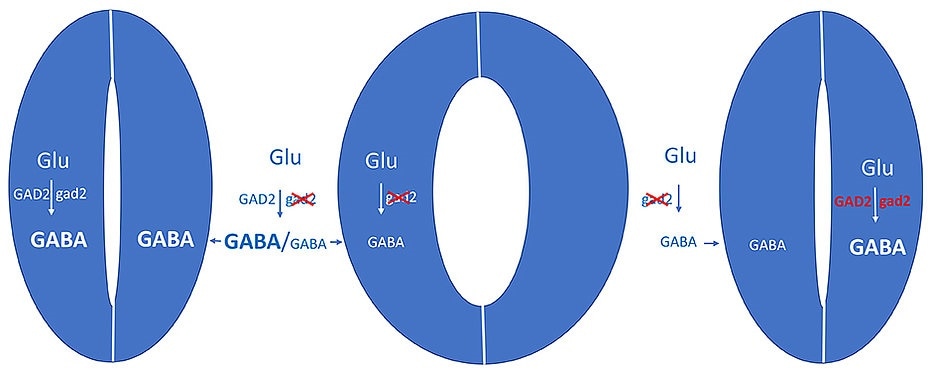During drought conditions, plants utilize a signaling molecule known from animals to reduce their water loss. This signaling molecule provides plants with a kind of memory to remember the level of dryness of a day.

During drought, the signaling molecule GABA is produced and inhibits the opening of leaf pores (left). If the enzyme GAD2, which converts glutamate to GABA, is genetically switched off, the pores remain open even during drought - the plants lose more water (center). If the gene for GAD2 is reintroduced into the closing cells, the defect is reversed. The experiment shows that the sphincter cells autonomously perceive stress and react to it with GABA production. Image Credit: Rainer Hedrich/Universität Würzburg.
I‘ve been studying how plants regulate their water balance for over 35 years. To find a completely new and unexpected way for saving water has certainly been one of the most surprising discoveries in my life.”
Rainer Hedrich, Professor, Plant Scientist, and Biophysicist, Julius-Maximilians-Universität Würzburg
Hedrich’s research team has identified this new approach along with scientists from the University of Adelaide based in Australia. The results of the study have been published in the Nature Communications journal.
GABA quantity as stress memory
The publication revealed that a signaling molecule GABA (gamma-aminobutyric acid) is used by plants to recall the dryness of a day. If the day is drier, more GABA will build up in the plant tissue during the day. And the next day, the GABA level determines how wide the plant opens the pores of its leaves. Water loss can be reduced based on the opening width of these pores.
The GABA signaling molecule also occurs in animals and humans, where it acts as a messenger substance of the nervous system. Plants do not have brain and nerve cells. But despite this fact, GABA is also present in them in relation to memory-like processes.
Rainer Hedrich proposed another association: Short-term memory, which is used by the carnivorous plant Venus flytrap to calculate the number of times its prey touches it, relies on the level of calcium in the cell. The enzymatic biosynthesis of GABA in plants is regulated by the calcium level.
Low water needs, high drought tolerance
Scientists have demonstrated the GABA effect in many different crops.
Under the influence of GABA, barley, broad beans and soybeans, for example, close their leaf pores.”
Matthew Gilliham, Professor, University of Adelaide
Laboratory plants that systemize more GABA because of mutations also respond in this manner. In experiments, such mutants require less water and can survive drought for a longer period.
Investigators are aware of other signaling substances in plants that cause the pores in the leaves to close. However, GABA depends on an entirely different mechanism of action, described Dr. Bo Xu, the lead author of the publication from the Australian Research Council Centre of Excellence in Plant Energy Biology.
Drought-tolerant plants for the future
A better understanding of drought tolerance and the water-saving mechanisms of plants has become more and more significant in times of climate change. For a few years now, the rising heat and drought conditions have been affecting several crops.
Water resources on the earth that can be used for agriculture are also under threat. Therefore, mankind will probably become increasingly dependent on novel varieties that still produce high yields with the least available water.
Source:
Journal reference:
Xu, B., et al. (2021) GABA signalling modulates stomatal opening to enhance plant water use efficiency and drought resilience. Nature Communications. doi.org/10.1038/s41467-021-21694-3.